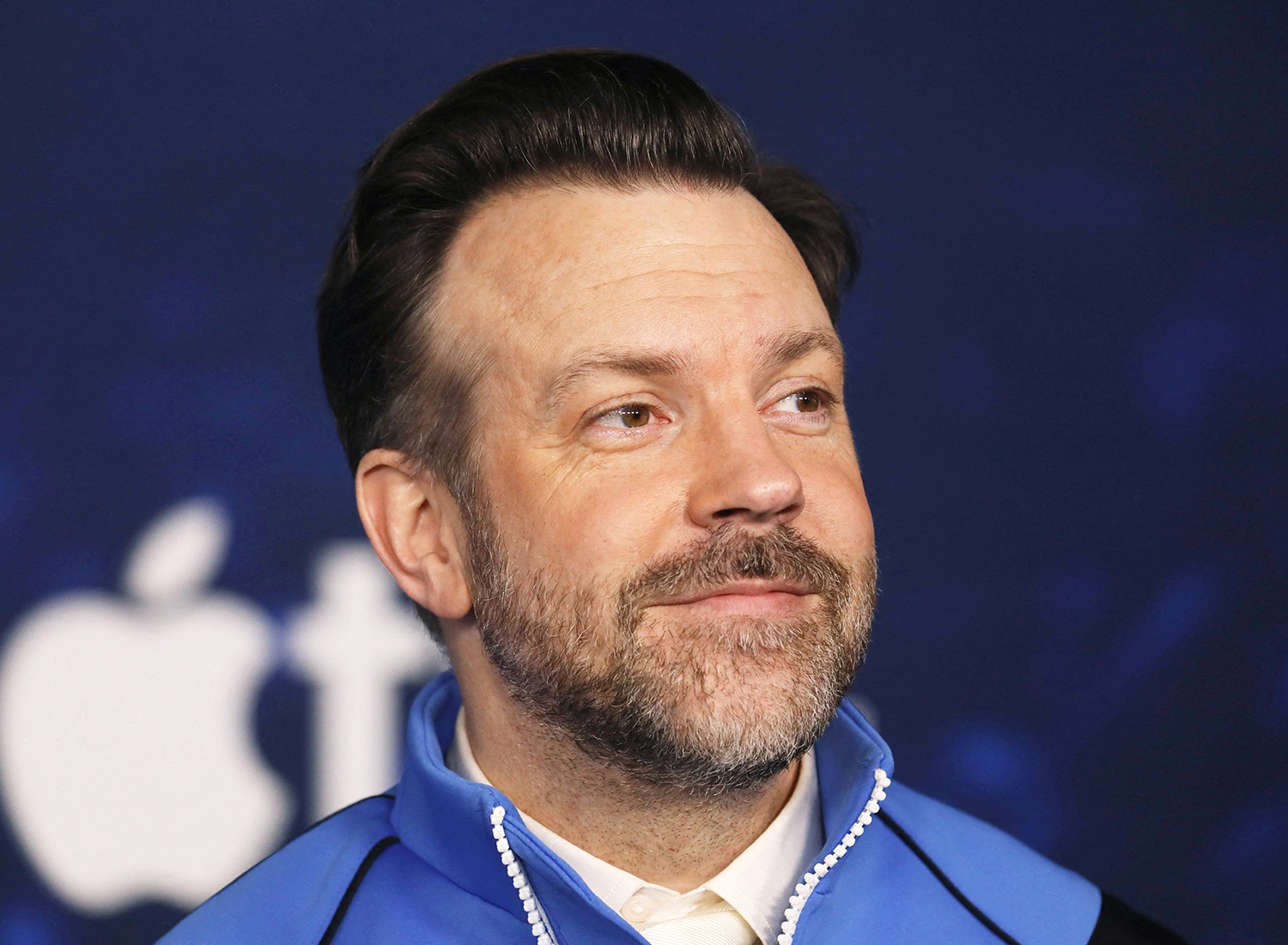(OSV News) Parting truly is “such sweet sorrow,” and in this era of anti-heroes, deep irony and unsympathetic characters, I miss “Ted Lasso.” Having found a well-written, brilliantly acted story about people I could actually care about — even if I needed closed captioning to understand most of them — I’ve felt the loss keenly.
Reason, and my oxymoronic, increasingly short attention span, both dictate that I should by now have found some new diversion, but this series about a relentlessly upbeat dad-talker and his effect on the people around him is still firing my synapses. Mentally, I revisit it daily and reflexively — the way one’s tongue revisits a missing molar.
Except, I know why I lost the molar; no questions there.
But of “Ted Lasso” I have questions. The final season left me with the same ambiguity I sometimes feel when I turn to God in prayer and ask, “So, that’s it?” And, “OK, I don’t understand, but I’ll try to take it as a gift. … I guess?”
For instance: Was Nate’s redemption arc supposed to be as unsatisfying to viewers as it seemed? This abnormal storytelling ignored the formulaic and well-established rule that villains must earn their redemption, and Nate — almost from the moment Coach Lasso acknowledged his gifts and elevated him from kit man to assistant coach — became truly vile toward the team and players he loved.
A meek, browbeaten man, Nate’s repressed anger emerges swiftly as he berates his young successor. He sneers to the coaching staff that they’d be fools not to take his advice. And well before he hurls a hurtful charge at Lasso for not keeping a photo of himself and Nate in the office (the coach keeps it at home, beside a picture of his own son), Nate brutalizes Colin, a good-but-insecure player, by making a devastating comparison between him and his teammates: “Artists, they’re artists. And, Colin, you paint, too, but your work doesn’t end up in museums. It hangs at — Well, you’re like a painting at a Holiday Inn. You don’t inspire. You don’t move people. You’re there. You cover a bloodstain. You do the job, so just do the job.”
In retrospect, perhaps Nate was projecting himself on to Colin, yet in that moment it was so easy to hate him. Forget that it’s just a story, or that we’d already seen Nate’s self-loathing and his need for his father’s approval. Forget that Nate had won our early sympathies. His vicious snarl toward the gentle Colin (whose mantra, given to him by a sports psychologist, was “I am a strong and capable man”), were loaded with the preening triumph of spite-at-large, and no matter what else we knew of Nate (yes, yes, hurt people hurt people, yes, his life was sad) as the darkness gathered him in we believed he’d earned our hatred.
So, naturally, he needed to earn our forgiveness if any redemption arc could be believable.
I’d begun to think of Nate as Judas, and to wonder whether the whole series was analogous to the Gospels, with Ted Lasso the Christ-mirror — the Incarnation of the Father, who is 100% love and who aches for us, longing for our return.
Nothing Jason Sudeikis ever said about the show he developed and starred in suggested there was a Christian subtext to any of it. And perhaps there was none, at least not on a “conscious” level.
But the Gospels have left their imprint upon the collective psyches of most of the West, and I cannot help reading it throughout the series, in every character’s storyline. In Nate I saw Judas, but then — when he unjustly expresses feeling unappreciated for his insights and loyalty to the team — he also becomes the older brother of the prodigal son, feeling entitled in his resentment. Later, he becomes a sign of resurrection, first enshrouded in his blankets, then isolated in his tomblike childhood bedroom, until he finally emerges, reclaiming parts of himself that he’d lost (his violin!) and becoming fully alive at the warmth of his father’s word.
Finally, he becomes the prodigal himself, trying to speak words of apology and contrition to Coach Lasso, who hugs him before he can manage them, because Nate is already forgiven. Like the father in that parable, Ted had already run out to meet him, even “while he was still a long way off” (Lk 15:20).
Materially, this remains an unsatisfying redemption story: Nate hasn’t done anything to earn forgiveness beyond feeling contrite. Spiritually, however, the scene explains grace in all of its mystery and simplicity: We don’t earn redemption. We simply turn back, and turn again, and again, as needed.
I hate “Ted Lasso” because it won’t leave me alone. I love it because it keeps me thinking. I hate that I won’t get to see Roy Kent interact with Phoebe again or watch Rebecca be a mother. Yet I love wondering whether the goofy, somewhat thick-headed barflies, Paul, Baz and Jeremy, represent Peter, John and James.
Was Ted Lasso about the Holy Trinity, after all? For certain, it highlighted the importance of fatherhood and unconditional love, and of setting our tent with each other, and of bringing forth our spirits to renew each other, and the world, and even a motley football team.
I marvel at all the ways the Gospel comes through to me via “Ted Lasso.”





